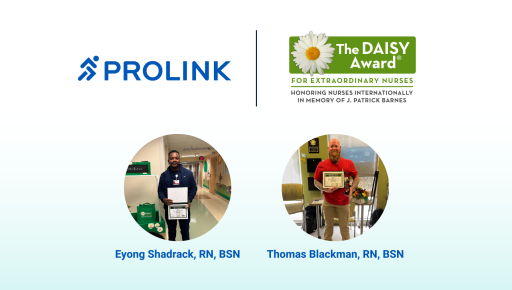Burnout is an ongoing crisis in the healthcare industry. According to a recent report, substantial levels of job burnout continue to affect healthcare staffing. The struggle to find a healthy work-life balance to help combat job burnout is real.
Achieving a balance is beneficial for individuals and has a positive impact on health care and patient care. A well-supported workforce is better equipped to provide high-quality, compassionate care. Focusing on the needs of the current workforce sets up the industry for later success, as increased job satisfaction contributes to a more stable and dedicated healthcare workforce.
The solution requires a focus and a combination of self-awareness, effective time management, and organizational support. Nurses, doctors, technicians, and all healthcare staff must prioritize themselves to continue delivering the best possible care to their patients.
Striking this delicate balance is not only essential for individuals but also for the overall health and sustainability of the healthcare industry.
What causes burnout?
A wide variety of factors, triggers, and circumstances allow burnout to take hold. If one or more of these central causes goes unaddressed, it’s likely that burnout will soon follow.
- Long hours and demanding schedules. Shift work (including nights, weekends, and holidays), overtime, and on-call duties can blur the lines between work and personal life.
- Emotional toll. Witnessing suffering, making life-altering decisions, and coping with loss can take a significant toll, causing emotional stress and compassion fatigue.
- Lack of control. Healthcare professionals often need to work on managing unpredictable situations and demanding schedules over which they have little or no control, leaving them powerless and stressed.
- Work-life guilt. The dedication required in healthcare can be trouble because it often leads to feelings of guilt when prioritizing personal needs, creating a constant internal conflict.
Each of these has devastating consequences for individuals, organizations, and, ultimately, the quality of care. Healthcare workers who struggle to overcome burnout are more likely to suffer from depression, anxiety, and substance abuse—leading to decreased productivity, increased absenteeism, and higher turnover rates, impacting patient care and creating staffing shortages.
Here are a few tips for professionals looking to avoid burnout symptoms.
Strategies for better work-life balance in healthcare
Set boundaries
Setting clear boundaries is one of the most important strategies for balancing work and life, no matter where you work or what you do. Establishing limits on the number of hours worked in a given day or week, taking breaks during your shift, and dedicating a spot on your calendar for personal time is essential to ensuring staff does not feel emotionally drained.
A conscious effort to separate work-related stressors and personal life is crucial. Even small steps, such as turning off work social media notifications during non-working hours, resisting the urge to constantly check emails at home, and communicating clearly with family, friends, and colleagues about personal time commitments, can all go a long way.
Prioritize physical and mental health
Healthcare professionals often feel overwhelmed and find themselves neglecting their needs over the needs of others. But finding and keeping a healthy work-life balance means prioritizing self-care, such as making time for regular exercise, getting enough sleep, and building healthy eating habits. You can also incorporate a relaxing activity into your week, such as a fun hobby or spending quality time with friends and family, which is equally important for overall satisfaction.
Embrace flexibility
Flexibility is crucial in achieving a sustainable work-life balance in many physician, allied health, and nursing jobs in the healthcare industry. Recognizing that unforeseen circumstances can arise and being open to adaptability can help reduce stress.
Employers can contribute by offering flexible work schedules, remote work options, and support for personal time off. Embracing flexibility benefits healthcare professionals and enhances their productivity, skills, and job satisfaction.
Improve time management strategies
Effective time management is fundamental for medical and healthcare professionals seeking to balance their demanding work schedules with their personal lives. Prioritizing tasks, setting realistic goals, and avoiding procrastination are essential to time management. Calendars, planners, and productivity apps can help healthcare professionals stay organized and efficiently allocate time.
Build a support system
Navigating the challenges of the healthcare industry requires a robust support system. Connecting with colleagues, friends, and family can provide emotional support and perspective. Sharing experiences and challenges with others who understand the profession's unique demands fosters camaraderie and reduces feelings of isolation and depression. Additionally, seeking professional help, such as counseling or mentoring, can be valuable in managing stress and maintaining a healthy work-life balance.
Incorporate technology mindfully
Technology has transformed how the world works, offering benefits and challenges. While technology enhances communication and efficiency, it can also contribute to a sense of constant connectivity and work-related stress. Dealing with technology involves setting boundaries on when and how technology is used. Establishing designated times for checking emails or messages and disconnecting during personal time can help create a healthier balance.
Advocate for change
Speak up about challenges. Offer an empathetic listening ear to coworkers who may be struggling. Encourage your workplace to implement policies dealing with well-being and flexibility for family members, such as predictable schedules, childcare resources, or access to physical and mental health services.
Prioritize your well-being with Prolink
Does a stressful work-life balance have you looking for your next career opportunity? Prolink understands, and we’re here to help. Whether it’s a 13-week travel assignment in your bucket-list city, or 13 years or more in a permanent role, our team of dedicated recruiters will work to accommodate your needs and find you the right fit. Click below to get started today.









